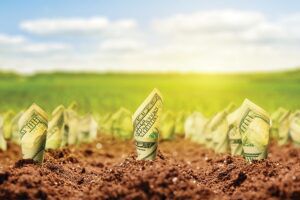The global sustainable bond market is expected to bounce back in sales this year, following a dip last year amid worsening credit conditions.
Sales of those bonds – green, social, sustainable and sustainability-linked – are projected to reach $900bn to $1trn in 2023, which would put them just behind the sales levels seen in 2021, according to a recent report from S&P Global Ratings. This comes after sales hit a record of $1.06trn in 2021, before falling to just over $850bn in 2022.
Sustainability-linked bonds
As sales potentially rebound, eyes will be on one specific type of sustainable bond – sustainability linked bonds, the report said. The relatively new bonds were on track for the first half of 2022 to surpass their already rapidly-growing levels seen in 2021, although they closed out the year lower, at $70.5bn compared with $94.4bn, according to data from S&P.
Sustainability-linked bond sales all but exploded in 2021 – sales in 2020 were just $8.8bn and $4.5bn in 2019. Those bonds have appealed to investors as a way to help encourage companies issuing them to improve their sustainability practices, and thus pay lower rates to bond holders.
The dip that that subset of sustainable bonds saw last year was almost certainly a symptom of the credit conditions that affected the bond market widely. However, sustainability-linked bonds came under scrutiny as questions arose about the targets their issuers had been setting and whether they were effective at improving sustainability. Those bonds, unlike use-of-proceeds bonds, have flexible conditions that vary as companies meet or fail objectives set at issuance.
“To get back to growth in 2023 and beyond, issuers of sustainability-linked bonds (SLBs) will have to find ways to address concerns flagged by market participants about the credibility of SLBs, namely surrounding issuer ambitions and incentives to achieve sustainability targets,” the report stated.
Use-of-proceeds bonds
Traditional use-of-proceeds bonds will be the predominant driver of sales this year, according to the report. Those bonds, which require issuers to use proceeds to finance projects, include green bonds, social bonds and sustainability bonds. Green bonds represented more than half of all sustainable bond sales last year and they are poised to continue strong sales as companies look to finance net-zero commitments, according to S&P.
Social bonds represented less than 20% of total sustainable bond sales in 2022 but saw strong growth in 2020 and 2021 amid Covid. Issuance of those bonds has tapered off and could continue to do so this year, as demand for pandemic relief funds has waned, the report noted. However, increasing need for affordable housing could contribute to some growth for social bonds.
That need will also help fuel issuance of sustainability bonds, which address both social and environmental concerns, according to S&P.
“Issuers in the public housing sector may look to develop green social housing options. Banks, in addition, could look to combine access to affordable finance with existing green lending initiatives,” the report stated. “Further, public finance and supranational entities may look to the sustainability bond market to finance more environmentally friendly social infrastructure such as schools, municipal buildings, hospitals, roads and energy.”
